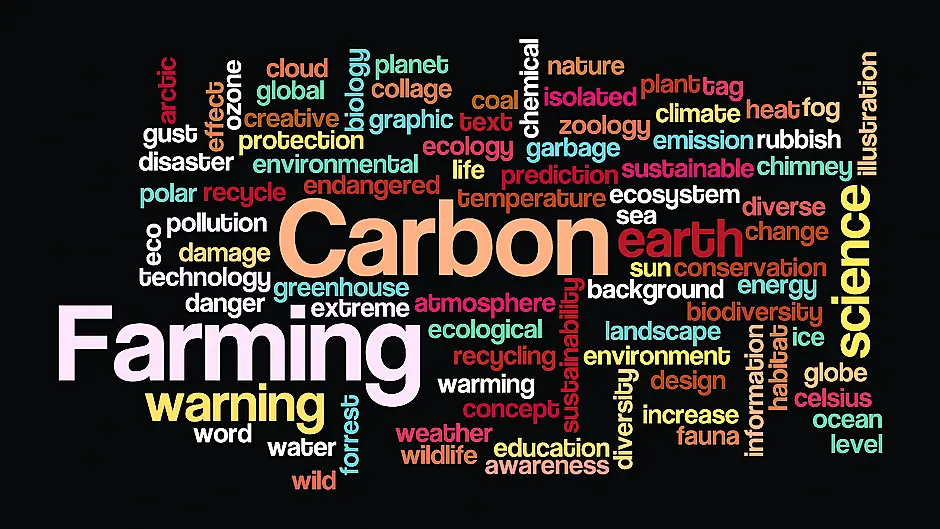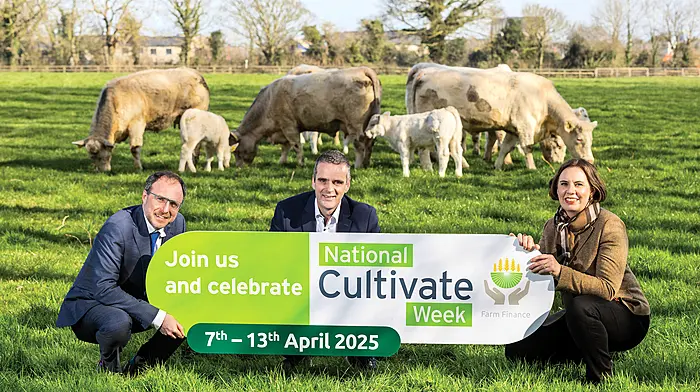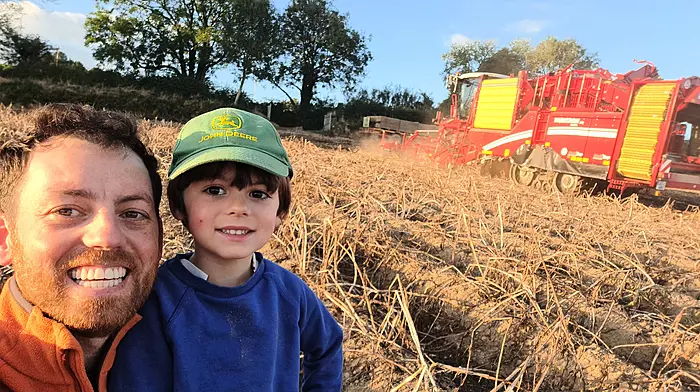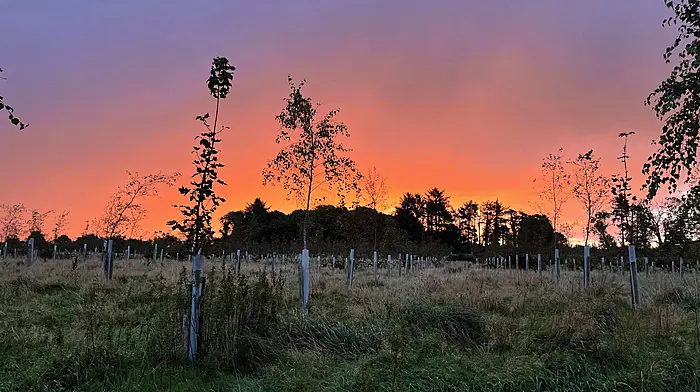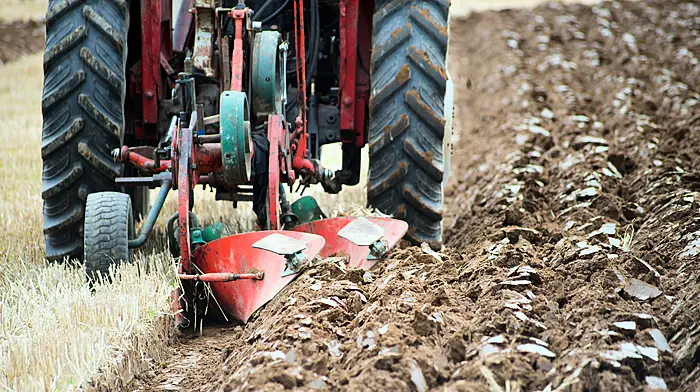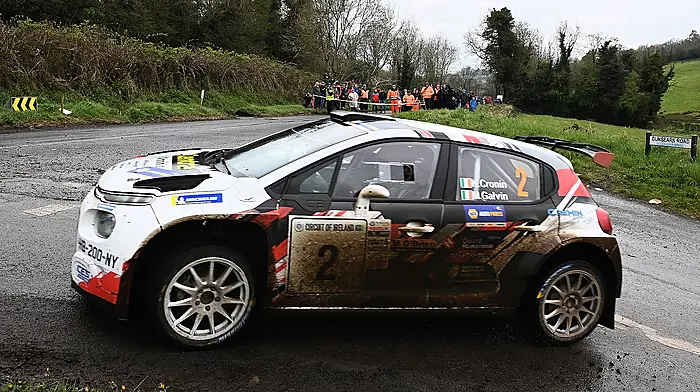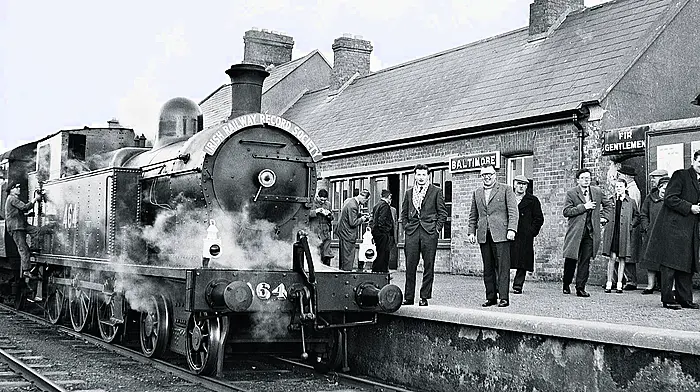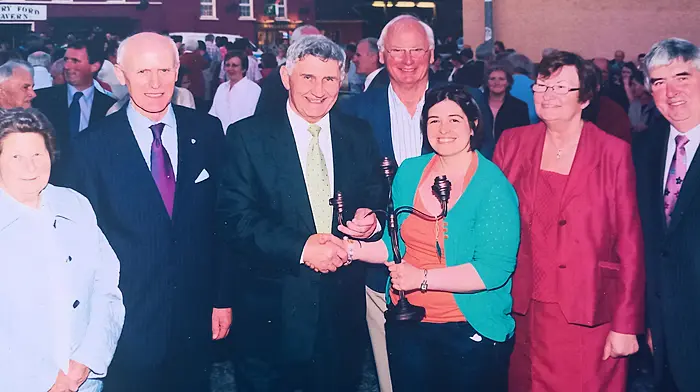With just seven years until the sector must reach its 25% emission target, Aoife Feeney, the former farm sustainability lead at Carbery, says it’s about basic steps, not big innovations
FARMERS need to focus on the basics when it comes to cutting emissions and look inside their own gate to make positive changes.
So says Aoife Feeney, who until recently worked as Carbery’s farm sustainability lead and is now the agricultural policy officer in the Netherlands embassy.
A well-known figure in the local agri community, Aoife feels it’s important that farmers don’t get bogged down in looking for the big innovations that will solve everything whether that’s a feed additive, or a technology, ‘because it’s not on the table.’
‘We’ve only seven years until 2030 when we need to reach the 25% emission target, so farmers need to look to themselves, decide right now what they can do on their own patch, and prioritise these actions, regardless of what else is going on,’ she said.
In fairness to West Cork farmers, she said, they have always been leaders in sustainability.
‘But they need to stay on top of that and if every farmer started by taking two actions that they haven’t already, from the Teagasc Macc (marginal abatement cost curve) they’d see results.’
Aoife studied animal science in UCD and worked with FRS and Teagasc in Cork for two years, before joining Carbery as an advisor.
‘I had a keen interest in the dairy sector and working with a company like Carbery seemed like natural progression and an opportunity to learn a key pillar of the industry in terms of sustainability in a time when it was only starting to be talked about.
‘I started in June 2018 as the sustainability advisor which was focused on getting the programme up and running off the ground, and communicating the objectives to the wider supply base. In the last couple of years of my time in Carbery, I took over the role of farm sustainability lead which really was quite broad, but an incredible learning experience.’ Her new role in the Netherlands embassy, sees her spend more time at a desk than on a farm.
‘It’s a very unique but diverse role, mostly involved in public diplomacy, bilateral communication and co-operation between the Netherlands and Ireland. My main focus to date has been on agri-food and fisheries policy. I’m also involved in trade co-operation between the Netherlands and Ireland for Dutch agri companies.’
She’s relishing the work, and also hopes to graduate with a masters in agricultural extension and innovation this year. She also served on the Irish Grassland Association Council for the past 12 months and received a 2022 Nuffield Scholarship Award, where her focus is how to positively influence farmers on action for water quality. She’ll present in 2023 after travelling this year to Canada, Netherlands, UK, Italy and next year to New Zealand, Japan, Indonesia and Australia.
‘I definitely like to keep busy!’ she said.
Despite not coming from a farming background, it was always the career for her. She originally wanted to be a vet, but living with rheumatoid arthritis meant it would be too physically demanding a career.
‘I remember when I was 16 and my consultant asking me what I wanted to study and I said veterinary and he just raised his eyebrows and looked at my mum. I had never considered the physical aspect of it until then, but it’s only recently I’ve realised they were right.’
Aoife got a new diagnosis this year in her lower spine and hip, where she suffers agonising pain.
‘It kicked off in 2021 and I thought first it might be an injury. It took a lot of back and forth to get diagnosed but it’s inflammatory arthritis.’
Far from being a setback, she took the diagnosis as a positive as it meant she could get a treatment plan in place.
‘It does mean I’m more immune-compromised so I’m at a higher risk of infection, but that doesn’t really bother me, you have to live life,’ she said.
She’s currently trying to get the mix of tools to manage the new diagnosis, but she says she’s used to living with pain.
‘I found it was worst if I was at a farm walk and you’d be standing around. The following days I’d be really stiff and I’d struggle to drive, but when I’m moving constantly it’s fine.
‘I walk in and out now to work every day in Dublin, which is fantastic. It’s not curable, but it’s manageable and I’ll take that. Some days you do get frustrated, but I’ve been through a lot worse, this is a minor detail.’
Aoife is referring to the loss of her dad, her best friend, from a rare form of bile duct cancer, two years ago, at the age of 68.
‘Wherever dad went, I went. I’ve three older brothers and a sister and I’m the baby of the family, so I was spoiled rotten. Dad was very ahead of his time in terms of his mindset, and had an incredible outlook on life, as does my mum. I definitely get it from them.’
She misses West Cork and says it will always have a piece of her heart. She says that West Cork farmers often taught her more than she taught them.
‘It was fantastic to see first-hand how farmers are up for the challenges ahead and willing to engage and that sometimes slips through the cracks. It’s probably what I miss, most having moved to my new role.
‘I was also very proud to be involved in Farm Zero C for a short period, and I think it’s very exciting for Carbery, the farmers and the industry, so I look forward to looking on from the distance.
‘I genuinely think West Cork farming is some of the best in the world. It’s progressive, open and willing to face the challenges coming its way.’

